|
When Louisiana passed a new law requiring the Ten Commandments to be displayed in all public classrooms, a debate began that will undoubtedly be resolved only in a federal court.
Defenders of the law point out that the Ten Commandments are foundational to Western civilization and much of American history. Doesn’t that justify their posting in terms of civic education? We agree that stripping all religion out of American education would be ahistorical. One cannot teach children about the origins of the American nation or the forces that sparked the American Civil War and the civil rights movement a century later without exploring the role of religion. Even in this context, however, the Ten Commandments seems more like an effort to impart religious moral guidance than teaching civics. Critics respond that the posters violate the First Amendment’s prohibition against the establishment of religion. Doesn’t that justify forbidding posting Judeo-Christian scripture? The American Civil Liberties Union contends that the Ten Commandments mandate constitutes an “unconstitutional religious coercion of students.” A federal court will have to determine if Louisiana’s Ten Commandment mandate violates the Establishment Clause under a historical understanding of similar laws at or near the time of the Bill of Right’s ratification. What is getting lost is that Louisiana is taking another step that presents a better way forward. The state is fostering educational pluralism in a way that includes those who seek a religious education for their children. Louisiana recently expanded its school choice program to allow for vouchers for families to choose private schools. The constitutionality of Louisiana’s school choice vouchers is enhanced by a Supreme Court decision, Carson v. Makin in 2022, and by other recent rulings holding that funding made available for secular schools must also be equitably available to religious schools. The new Louisiana vouchers will enable many children to attend quality private schools, whether religious schools or purely secular. All such schools must meet state standards in the teaching of science, history, civics, math, and other subjects. Enhancing the right of parents to choose values they want to extend to their children – whether secular or religious – is a fruitful path that manages to thread the needle for pluralism, educational standards, and, for those who choose it, a religious education. Drummond v. Oklahoma Statewide Virtual Charter School Board The Oklahoma Supreme Court ruled 7-1 this week against allowing public charter funds to support a virtual Catholic school, holding that the funding of online religious schools by the state to be unconstitutional.
“Today’s ruling is very disappointing for the hundreds of prospective students and their families from across the state of Oklahoma who desired the educational experience and promise of St. Isidore of Seville Catholic Virtual School,” the Archdiocese of Oklahoma City said in a statement. “We will consider all legal options and remain steadfast in our belief that St. Isidore would have and could still be a valuable asset to students, regardless of socioeconomic, race, or faith backgrounds.” Our take is that the Oklahoma Supreme Court’s opinion is buttoned down, logical, and eminently overturnable. It relies on that state’s version of a Blaine Amendment, a movement that gathered momentum when American politics was infected with anti-Catholic bigotry. In our view, publicly funded charter schools are similar to voucher programs, which are often given to religious schools that – in every state – must meet mandated standards in English, math, history, science, and other subjects. Taking the state’s money, in our view, would make St. Isidore a publicly funded school, but not a “public school.” Justice Dana Kuehn made a similar point in her lone dissent: “St. Isidore would not become a ‘state actor’ merely by contracting with the State to provide a choice in educational opportunities. By allowing St. Isidore to operate a virtual charter school, the State would not be establishing, aiding, or favoring any particular religious organization. To the contrary: Excluding private entities from contracting for functions, based solely on religious affiliation, would violate the Free Exercise Clause of the First Amendment to the United States Constitution.” The Oklahoma State Attorney General, Gentner Drummond – the petitioner filing against St. Isidore – likened the inclusion of a Catholic school to a private takeover of the operations of the Oklahoma Highway Patrol, rebranding it as the “Catholic Church Highway Patrol.” (Imagine the fun comedians would have with that, being pulled over for confession and then having the officer ask you, “sir, you know it’s Friday, is that meat on your breath?”) Justice Kuehn latched on the ridiculous nature of this metaphor. She wrote: “The logical flaw is that, unlike law enforcement, enrollment in a charter school is fundamentally a choice for parents to make. St. Isidore would not be ‘taking over’ any function that is traditionally the exclusive realm of the State. It would exist alongside state-mandated secular options.” Justice Kuehn is right. The issue here is that inclusion of St. Isidore would give the people of Oklahoma a choice in picking a school that would adhere to state-mandated standards, giving parents a choice for a rigorous education and the continuation of their cherished values. Justice Kuehn pointed to the U.S. Supreme Court’s striking down of a Montana Supreme Court opinion, Espinoza (2020). In that case, the Supreme Court ruled that a state-based scholarship program that provides public funds to allow students to attend private schools cannot discriminate against religious schools under the First Amendment’s Free Exercise Clause. Justice Kuehn predicts a similar result. Fourth Circuit Forces Parents to Decide Between Religious Values or a Free Public Education6/26/2024
Mahmoud v. McKnight A recent ruling by the Fourth Circuit Court of Appeals has struck a severe blow to the cause of parental rights and religious liberty. This contentious case revolved around the Montgomery County Board of Education's controversial decision to deny opt-out requests for certain LGBTQ+ inclusive texts used in K-5 classrooms.
As we’ve reported, parents argued that this policy infringed upon their First Amendment rights to shape their children's education regarding sexuality and gender, contending that it forced them into an untenable position: compromise their deeply held religious beliefs or withdraw their children from public education altogether. The Fourth Circuit Court of Appeals affirmed the district court's decision, denying the parents' request for a preliminary injunction. The court concluded that the parents failed to demonstrate a substantial burden on their religious exercise, determining that exposure to the inclusive texts did not amount to a violation of their religious rights. The ruling emphasized that the school's curriculum did not compel students to affirm or renounce any beliefs, but merely exposed them to diverse perspectives. Judge A. Marvin Quattlebaum issued a strong dissent in this case that should be required reading for anyone in need of a better understanding of the foundational importance of religious liberty. Judge Quattlebaum criticizes the majority for not recognizing the burden placed on parents' religious rights. He asserts that “the board's decision to deny religious opt-outs burdened these parents' right to exercise their religion and direct the religious upbringing of their children by putting them to the choice of either compromising their religious beliefs or foregoing a public education for their children.” A key point in Judge Quattlebaum's dissent is his emphasis on the non-neutrality and lack of general applicability of the board's actions. He argues that the board's decision was not neutral because it selectively imposed a burden on religious practices while accommodating other types of opt-outs, such as for Halloween or Valentine's Day celebrations. He asserts that the board's actions were discriminatory against religious beliefs, which is contrary to the First Amendment's protections. The judge writes: “The policy was neither neutral nor generally applicable because it invited the government ‘to decide which reasons for not complying with the policy are worthy of solicitude’ in its sole discretion.” Judge Quattlebaum also highlights that the parents were not attempting to ban the books but merely sought the ability to opt out. He points out that the school’s guidelines previously allowed for reasonable accommodations for religious beliefs, and the sudden reversal without clear justification exacerbates the burden on religious parents. He finds it problematic that the board changed its policy to no longer permit notice and opt-out options, a move he describes as an unexplained “about-face” that failed to consider the substantial impact on religious families. While the board aims to foster an inclusive environment, Judge Quattlebaum argues that this goal should not come at the expense of fundamental religious rights. As he says: “The board’s refusal to grant the parents’ requests for religious opt-outs to instruction with the books the board required be used to promote diversity and inclusivity to the LGBTQ+ community forces the parents to make a choice – either adhere to their faith or receive a free public education for their children. They cannot do both.” Judge Quattlebaum's dissent stands as a powerful defense of the fundamental right of parents to direct their children's education according to their beliefs. The Lone Star State is back on track to enact comprehensive school choice legislation. Gov. Greg Abbott has secured enough votes in the Texas House to advance his ambitious school-choice agenda. With the likely adoption of school choice in the nation’s second-most populous state, the national sweep of school choice will gain even more momentum.
The renewed school choice agenda in Texas follows primary runoff elections reflecting strong support for educational vouchers among Texans. Gov. Abbott’s campaign to replace anti-voucher Republicans with pro-voucher candidates yielded impressive results. Eleven out of the 15 Republican challengers he backed defeated House incumbents in their primaries. This victory is seen as a monumental shift in favor of school choice. Tommy Schultz, CEO of the American Federation for Children Victory Fund, described these GOP elections as the "single biggest movement in favor of school choice in modern history." The success of Abbott’s endorsed candidates reflects the growing demand for educational freedom and parental empowerment in Texas. The journey has not been without challenges. Last year, many House Republicans voted against expanding school choice, stopping Abbott’s proposal cold. Their opposition was largely due to concerns from rural districts about potential cuts to public education funding – despite assurances that Texas would keep these districts whole. Gov. Abbott’s renewed momentum in Texas suggests a strong potential for change. Pro-voucher Republicans now hold a majority in the House, with 77 members in the 150-member chamber. This shift sets the stage for the potential passage of significant school choice legislation in the near future. Protect The 1st sees school choice movements like the one in Texas as a fundamental expression of First Amendment rights. By empowering parents to choose the best educational pathways for their children, school choice promotes values and heritage across generations. The broad support for school choice among Americans, including significant backing from minority communities and a substantial portion of Democrats, reflects its widespread appeal. Gov. Abbott’s primary victories mark a crucial turning point for school choice in Texas and the nation. In March, Alabama became the 11th state to embrace universal school choice. Tennessee is edging ever closer to adopting statewide school choice. If, as seems likely, a school choice success in Texas would make a dozen states – about one-quarter of all states – now with comprehensive or universal school choice. A school voucher program in Pennsylvania, previously vetoed by Gov. Josh Shapiro, is getting a second chance.
The Senate Education Committee has advanced the PASS scholarship, setting it up for budget negotiations. Last year, Shapiro expressed support for the scholarships but vetoed them when faced with opposition from his fellow Democrats in the Pennsylvania House. These scholarships would provide low-income students in underperforming public schools with funds to attend private schools. The money could also cover school-related fees and special education services. Shapiro's veto message last year hinted at the possibility of reviving the scholarships, a sentiment he reiterated in his recent budget address. The current challenge remains the Democratic-majority House, influenced heavily by teachers' unions opposed to the program. The Senate leadership's firm stance and Shapiro's potential influence could lead to a different outcome this time. Public support for the scholarships is significant. A poll by the Commonwealth Foundation in March found 77 percent of registered voters in favor, including 94 percent of Black voters and 83 percent of those with incomes below $40,000. This support underscores the demand for alternatives to struggling public schools, especially in places like Philadelphia, where proficiency in basic subjects is alarmingly low. The PASS scholarship program aims to provide up to $10,000 for students in the lowest-performing districts to attend private schools. Unlike other voucher programs, it wouldn't divert funds from public schools. Yet public school advocates argue that funds should focus on improving the public education system. The debate over the school voucher program is set to intensify during the 2025 budget negotiations between the Republican-controlled Senate and the Democratic-controlled House. The outcome could significantly impact educational opportunities for many low-income students in Pennsylvania. If you live in Pennsylvania, Protect The 1st urges you to weigh in with your state representative and state senator. While the political momentum behind school choice in Texas accelerates, Alabama just became the eleventh state to embrace universal school choice.
Alabamians will soon be able to create Educational Savings Accounts that will apply $7,000 in tax credits per student toward private-school tuition or other educational expenses. This program, aimed first at low-income families with a $100 million a year contribution from the state, will soon expand availability to all Alabama families. Universal school choice programs like this one give parents a powerful way to exercise their First Amendment rights by expressing their values across generations. Alabama’s turn to school choice is also a heartening sign for Texas, which has long struggled over passing a universal school voucher program. The Alabama Legislature, like that of Texas, had recently allowed school choice to die. This turnabout in Montgomery, Alabama, shows that the desire for school choice by families is too strong to be resisted by a few holdouts in Austin, Texas. At least 9 of those holdouts in Texas lost their seats in the recent Republican primary election. That election, Gov. Greg Abbott declared, is an “unmistakable message from parents.” Here's to seeing the Lone Star State – the second-most populous in the nation – become number twelve in the universal school choice movement. School choice continues roll across the country. Since 2021, ten states have passed universal choice measures, with more states moving in that direction way.
In Texas, school choice met its Alamo in the Texas Legislature late last year. But Texans remember the Alamo with fondness because only a few weeks after that tragedy, Texans won their independence. And so it has been for school choice. In the recent slate of elections, it was six of the anti-school choice incumbents who were ousted. Four are currently fighting to retain their seats in a runoff. Their winning challengers were endorsed by Texas Gov. Greg Abbott, who aims to work with the new legislators to push through his plan for education savings accounts for the over five million K-12 students in the nation’s second most-populous state. Why did the legislators, conservative and rural Republicans, stop school choice in the first place? They were worried that school choice would divert funds away from their rural public schools. This is an understandable fear for counties with small populations and scant resources. Gov. Abbott promised extra resources for these areas. These fears were further allayed by Tom Newell, a former Republican Oklahoma legislator whose timely op-ed in the Wall Street Journal called on rural Republicans to embrace school choice. Newell wrote that parents, teachers, and politicians are often afraid to speak out in favor of educational freedom, lest they attract the wrath of the local superintendent or teachers’ union representative. When Newell announced his candidacy, he wrote that “a consultant told me I couldn’t support education freedom and get elected in rural Oklahoma.” Nevertheless, Newell campaigned on educational freedom and won with 61 percent of the vote. “There’s a silent majority of parents who know education freedom is good for their kids. Empowering those parents will help, not hurt, your re-election.” It is easy to see why. Competition is proven to drive educational success. School choice is also the ultimate, intergenerational expression of the First Amendment, giving parents the power to choose to extend their values and heritage across generations. Over 70 percent of Americans support school choice. Minority voters take the lead, with 83 percent of Black and 77 percent of Hispanic voters registering their support. Once the strongest bloc of opposition to school choice, 68 percent of Democrats support school choice. Pennsylvania Gov. Josh Shapiro declared that school choice is important because “every child of God” deserves a “quality education.” More than 180 Democrats holding office at all levels are members of Democrats for Education Reform, which seeks to promote school choice policies in the Democratic Party. The group calls on Democratic politicians to adopt education freedom, declaring on its website: “If Democratic lawmakers want to be the champions of public education excellence and equity, they need to do some serious soul searching on how they position themselves on public charter schools.” Newell now travels the country promoting education freedom to lawmakers. To rural Republicans who are concerned about the viability of school choice in their areas, he says, “In the district I represented, there wasn’t a marketplace until there was. An educational marketplace definitely won’t arise in places where one-size-fits-all laws block it.” School choice is poised to take the nation by storm. It can no longer be held up by vested interests and timid politicians. Protect The 1st looks forward to seeing the Lone Star State be the next to offer families educational choice. Less than a year after his children were nearly murdered in the 2022 school shooting at Robb Elementary School in Uvalde, Texas, Adam Martinez was banned from school property and school board meetings for two years. His offense? Daring to raise his concerns for the safety of schoolchildren with the chief of police.
The world watched the Uvalde shooting at this school in horror: A former student fatally shot 19 students and two teachers. Security camera footage during the shooting showed Uvalde police officers standing by for more than an hour while this atrocity unfolded. Had police intervened, it is entirely likely many lives would have been saved. The police have been roundly condemned and a full investigation and reorganization is underway, so you might think the police would be more receptive to criticism, especially from Robb Elementary parents. It turns out that’s not the case. Martinez has been a leader in his community since the shooting. He started a local group that organized fundraisers for victims of the shooting, engages in community service in Uvalde, and advocates for improvements in school safety. Martinez has spoken out online, at school board meetings, and directly with Uvalde administrators in support of these goals. According to FIRE, in February 2023, Martinez discovered the school district had recently hired an officer the sheriff’s office deemed ineligible for rehire. At a school board meeting that month, Martinez approached Uvalde Schools Police Chief Josh Gutierrez to express his concerns about the hire. Though Gutierrez was initially receptive, he quickly sought to shut down the conversation when it became clear that Martinez was criticizing him. Gutierrez told Martinez to sit down, who refused and pressed his point. Gutierrez then “verbally banned” Martinez from school district property and told him and his family to leave. The following day, Martinez received a letter stating that he was banned from school district property for the next two years. FIRE quickly became involved and sent a letter to the district in May, threatening to sue if the district did not lift the unconstitutional ban. The school district responded in July, formally dropping the ban against Martinez. Protect The 1st commends FIRE on a job well done. We hope the resolution of this incident will encourage school boards around the country to respect the right of parents to speak up. In districts with concerns less fraught than those of Uvalde, disagreements over ideological instruction often become heated. Democracy has always been disputatious. While we recognize exceptions for true threats and obscene language, the speech rights of angry parents should not be diminished by their anger. A recent Wall Street Journal op-ed made the case for school choice as an antidote to “illegal work stoppages” in the educational system.
In January, the Newton Teachers Association in Massachusetts staged a walkout in pursuit of higher pay, despite earning an average of more than $93,000 per employee (8 percent higher than the average statewide salary). The work stoppage left 12,000 Newton schoolchildren abandoned for weeks, with courts attempting in the interim to enforce a 1973 law prohibiting Massachusetts public employees from striking. The Journal contends that making per-pupil spending directly available to parents and children to choose their own educational paths will disincentivize disruptions like the one that took place in Newton. That is doubtlessly true. For our part, Protect The 1st values school choice not for any operational or political reason, but because it substantiates the guarantees of the First Amendment. It permits parents, religious or nonreligious, conservative or liberal, to find schools that best fit the values they want to pass on to their children. Research proves that school choice brings powerful improvements in academic results and in children’s lives. It empowers parents and it challenges public schools to do better. That is why school choice is sweeping the nation, with 10 states passing universal school choice since 2021 and many others creating education savings accounts that allow public funds to follow the child. The school choice movement would do well to steer clear of any hint of union-busting (which itself implicates First Amendment rights to free association). Instead, let’s look at the measurable benefits over time – not least of which is allowing parents to pass down their values and children to achieve excellence. Such a change would not only be in the best interests of parents and their children. It would be in the enlightened self-interest of teachers themselves, offering many new opportunities for flourishing careers. Twenty-one House and Senate Members, including House Speaker Mike Johnson, have signed a Federal Education Freedom Pledge “to cosponsor and vote for legislation that allows federal funding to follow students.”
That simple statement encompasses a growing philosophical shift as policymakers begin to attach public funds to students, not to specific schools systems, whether public or private. Speaker Johnson is a standout leader of this trend. Before attaining the speakership, Rep. Johnson was a co-sponsor of the Educational Choice for Children Act, which would direct tax credits for K-12 scholarships. The legislation has more than 140 co-sponsors in the House and nearly 30 in the Senate. As we conclude National School Choice Week, there is much to celebrate – but still much more to accomplish. For decades, the expansion of the school choice movement has grown at the edges of public policy awareness. In 2023, it exploded across the country, with Tennessee now shortly expected to become the 10th state to pass universal school choice. Last year, Montana became the 46th state with an official charter school law, while New York State loosened its charter school cap. States from Utah to South Carolina, Iowa, Arkansas, and Montana have enacted educational savings accounts (ESA) that allow students to devote public education funds to private schools. Florida, Indiana, New Hampshire, and Tennessee recently expanded or converted ESA programs. The school choice movement has the potential to go fully national. Polls show that almost 70 percent of Democrats supported school choice in 2022 – an increase of 9 percent from the pre-Covid era. It is true that all 21 signatories to the Federal Education Freedom Pledge are Republicans. Most of the states that have enacted or expanded school choice are considered red states. But there are growing signs that Democrats are following the lead of their constituents. Pennsylvania Gov. Josh Shapiro, a Democrat, recently said in an interview: “We should have scholarships for poor kids in struggling school districts – particularly poor kids of color – to give them an opportunity to get more tutoring, to get more help, to be put in the position where they can go to the schools that are best for them.” The vast majority of Americans support school choice over concern for the flagging, often mediocre, performance of the American public educational system. Our organization supports school choice for yet another reason. The heritage and values we bequeath to our children will be our longest-lasting expression of speech possible, one passed down the ages. That is why Protect The 1st sees school choice as a natural extension of the guarantees of the First Amendment. School choice encourages true educational pluralism and eliminates top-down imposition of ideologies – which vary among the states – by monolithic, public-school systems. Choice allows all parents, religious or nonreligious, conservative or liberal, to find schools that best fit the values they want to pass on to their children. Here's to having even more to celebrate during National School Choice Week 2025. Colorado and the Catholic Church are locked in a struggle over whether the state’s universal preschool program should include religious schools that impart religious instruction.
It began in 2022, when Colorado's Department of Early Childhood launched a program offering 15 hours of free education per week to all preschoolers at a private or public school chosen by their parents, aiming to provide universal preschool access before kindergarten. According to the Becket law firm, the department then imposed restrictions categorically forbidding all Archdiocesan Catholic preschools from participating – excluding over 1,500 kids at 36 preschools. It seems as if universal isn’t so universal after all. The Catholic schools’ federal lawsuit against the State of Colorado aims to protect the right of families who send their children to Catholic schools to participate in that state’s universal preschool program. The lawsuit filed by St. Mary’s and St. Bernadette’s parishes, brought by the Becket Fund for Religious Liberty, would ensure their preschools had access to state funding, seeking to challenge the Colorado Department of Early Childhood’s decision. Such schools fulfill a vital charitable role within their communities. Many of the families they serve are of limited means. Twenty percent of families who send their children to preschools in the Archdiocese qualify for the free and reduced-price school meals program. At St. Bernadette’s, that number is 85 percent. At St. Mary’s over a quarter of families also receive scholarships or discounts on their preschool education. That Colorado would knowingly deprive impoverished schools and families of critical resources simply because of their religion is unconscionable – and also unconstitutional. The Supreme Court has three times in the past six years affirmed that the government cannot exclude some people from public benefits because of their religious beliefs or the free exercise of their religion. Families of any religion – or no religion – ought to have the freedom to raise their children in accordance with their values without losing out. In late October, U.S. District Court Judge Daniel D. Domenico granted a Christian school in Buena Vista, Colorado, a preliminary injunction, allowing the school to remain in the universal pre-K program and receive state funding while their case proceeds. Judge Domenico wrote that the state forces the school “into the unconstitutional choice of abandoning religiously motivated practices or foregoing otherwise available public funding … Exclusion of a preschool is inherently anti-universal, and denying participation based on one’s protected beliefs or speech is not equitable.” PT1st looks forward to further developments in this case. Tennessee Gov. Bill Lee has declared his intent to catch up with the pack on school choice policy. He unveiled a new proposal to expand education savings accounts (ESAs) to provide families and students with increased autonomy in choosing educational pathways.
“Nine states have passed us in this effort,” said Gov. Lee. With plans to extend ESAs to universal availability by the 2025-26 school year, Tennessee signals a commitment to achieving school choice throughout the state. Tennessee stands as a sharp contrast to Texas, which recently backtracked on advancing school choice. Despite a strong atmosphere in favor of school choice, including pressure by Gov. Greg Abbott, school choice has stalled out. It was conservative Republicans in the Texas House who killed a recent measure out of fear that a school choice program would divert funds away from rural public schools. Universal school choice is spreading across the nation like a prairie fire. What started decades ago as a fringe movement is becoming a realized path to educational freedom across the country. By joining the cause, Tennessee is on a path towards an educational landscape that emphasizes parental empowerment and student-focused policies. Protect The 1st is pleased by these developments and looks forward to further progress in Tennessee. We urge Texas to come to a fair agreement on rural schools and enact a school choice bill soon. TIME FOR ‘UNFETTERED COMPETITION’ “School choice is sweeping the nation,” writes Harvard economics professor Roland Fryer in a recent piece for the Wall Street Journal. “But school choice as we know it won’t fix the American education system.” What is needed, he argues, is “unfettered competition” instead of the piecemeal, “half a loaf” approach with which we are currently saddled.
Fryer alludes to the stunning groundswell of support for school choice in recent years. Since 2021, ten states have passed universal choice measures. It’s a positive development for the world’s most prosperous and powerful nation, which incongruously lags behind many of its peer and non-peer competitors in scholastic outcomes. As Fryer points out, the United States came in 36th in math and 13th in reading in the 2018 Program for International Student Assessment. It’s hardly an adequate result for a nation as bold and innovative as our own. Despite some encouraging signs when it comes to school choice, Fryer argues that our current system remains “more patchwork than panacea.” Against the backdrop of standardized and homogenous public-school curricula, a full-fledged embrace of the free market is necessary if we are to fully unlock our young people’s potential. Protect The 1st believes school choice supports the full expression of the First Amendment. The First Amendment’s guarantees of free speech and the free exercise of religion must include room for parents to choose schools that reflect their beliefs. Doing so will have the added, bonus effect of alleviating some of the non-stop controversies that so dominate the educational discourse of late. Consider the endless arguments over textbooks and curricula, from the banning of literary classics like 1984 in Iowa to the “stench of animus” towards religious student groups in California. Consider the persistent attempts to incorporate ideological instruction for children as young as four years old. With public schools having a monopoly on public education dollars, the only option for many who can’t afford private schools is to accept what’s dished out or simply pick up and move. More choice means more freedom for parents to guide their children’s education by selecting schools that align with their values, or offer education of superior quality. There has to be a better way, and Fryer is correct that our current Balkanized approach won’t cut it. Advocates must be bolder, he says, submitting that if “we can fully commit to free market principles in education, we can create an education system that unlocks the talents of every student in our lifetimes.” One way to do that is through education savings accounts, which he writes “allow parents to channel public funds to a variety of educational services, from private-school tuition and microschools to tutoring and online courses.” By funding ESAs at a level comparable to public schools, you give parents real purchasing power. Competition and innovation will result. That is the true underlying principle upon which school choice operates. Want to send your child to a school that meets all the state requirements but is also a Christian, Jewish, or Muslim school? Want to send your kids to a school with a great literature program? Or one with more of an emphasis on STEM? School choice does that, but first you have to end the public monopoly on education for everyone to have those choices. And we won’t get there unless advocates double down. In May, Iowa Gov. Kim Reynolds signed into law Senate File 496, a landmark parental rights bill that, among other things, requires schools to remove books that depict a “sex act.” The expansive reach of this law is leading school districts to toss out thought-provoking books and classics of Western literature. The Bible, if it could be admitted to a public school library, might face a similar fate over the Song of Solomon.
The Iowa City Community School District removed 68 books to comply with the law, including James Joyce’s Ulysses and Jodi Picoult’s Nineteen Minutes, Margaret Atwood’s The Handmaid’s Tale, and Toni Morrison’s The Bluest Eye. Among the hundreds of other books removed by other Iowa school districts are George Orwell’s 1984, Aldous Huxley’s Brave New World, Kurt Vonnegut’s Slaughterhouse-Five, and Winston Groom’s Forrest Gump. These books have enriched the reading lives of high school students for decades. Let us propose one test for any content restriction law: if your bill bans 1984, you might be a little too much like the book. In Arkansas, plaintiffs before a federal court are contesting two provisions in the state’s Act 372. One provision creates a misdemeanor criminal liability for librarians and booksellers, and even parents, who “[furnish] a harmful item to a minor.” The second creates a process by which any citizen can challenge the appropriateness of any book and have it removed from a school or other public library, applying local community standards, with final decision-making power in the hands of local county quorum courts or city councils. As the plaintiffs assert, the first provision would result in either the widespread removal of books or an outright ban on young people under 18 from entering libraries or bookstores. The second one, they argue, would allow vocal minorities to tell entire communities what they can and cannot read. The judge in this case found the plaintiffs likely to succeed in both claims on the merits based on the overbreadth of these provisions. If prohibitions, such as the elimination of “sex” from literature is too broad, what kinds of content should be legitimately challenged by parents? As if to answer this question, the Montgomery County Board of Education in Maryland maintains as part of its elementary school curriculum requirements controversial readings of sexually charged subjects, such as gender transition, and fetish topics like leather and drag queens. A balance is needed. Our laws have always recognized the need to delineate age-appropriate materials. But laws that are overly broad and vague risk trampling on legitimate First Amendment interests, degrading the educational experience of students, and will only result in costly legal battles. When legislators stick to crafting laws that support appropriate content curation for school libraries and avoid doomed efforts at censorship, everyone is better off. Legislators would save themselves the embarrassment of having their laws invalidated by courts when they pass messaging bills that are clearly unconstitutional. Parents can be assured their children will be protected from inappropriate content. And students can enjoy the best works from the best writers. Loffman v. California Department of Education In March, religious parents and schools in California brought a lawsuit challenging a state policy barring them from accessing special education funding for children with disabilities. In August, the U.S. District Court for the Central District of California ruled against the plaintiffs, dismissing the case despite clear, contravening Supreme Court precedent supporting their claims. Now, the plaintiffs (represented by the Becket Fund) are appealing before the Ninth Circuit.
It is hard to understand how California can fail to recognize the constitutional implications of its policy, which permits federal and state special education funding for disabled children at secular private schools but prohibits it for religious private schools. This funding originates with the Individuals with Disabilities Education Act (IDEA), a federal law ensuring that all children with disabilities in America can receive a free, appropriate public education that meets their needs. (The word “public” in this context is a term of art that refers to a “public expense” – either at public or private schools.) What’s more, there is direct, on-point precedent prohibiting such policies. The U.S. Supreme Court in Carson v. Makin struck down a Maine law which, like the California law, allowed private secular schools and families to access public funding but excluded religious schools and families. Further, in Fulton v. City of Philadelphia, the Court held that a law burdening religion triggers strict scrutiny if it allows for discretionary exemptions. There is no compelling government interest in discriminating against religious people; nor does categorically exluding religious institutions from receiving public funding constitute narrow tailoring. The plaintiffs in this case are Los Angeles-area Orthodox Jewish families who wish to send their special-needs children to Orthodox Jewish schools, as well as two Orthodox Jewish schools that want to welcome children with special needs. Such accommodations are expensive, and IDEA dollars go toward paying for staff training, assistive technology, and programmatic expenses. By all rights, the plaintiffs should be able to access these funds. Protect The 1st continues to support the plaintiffs and Becket attorneys in their efforts to ensure all students with disabilities in California can receive a quality education in line with their academic needs and religious heritage. To quote Becket’s brief, the California legislature forces parents to “choose between the Jewish education that is their birthright and the governmental special-education assistance they are entitled to as Americans.” Protect The 1st believes the issue before the court is a simple one: Parents shouldn’t have to choose between the free exercise of their religion under the First Amendment and support for their disabled children. With the looming inauguration of Governor-elect Jeff Landry, Louisiana may soon become the 11th state in the nation to offer universal school choice – that is, if Texas doesn’t get there first.
Earlier this year, the Louisiana House of Representatives passed HB 98, authorizing the creation of education savings accounts – matching public per-pupil funding levels – that parents can use to send their children to the schools of their choice. The Senate failed to take up the legislation before the session’s adjournment. With the arrival of Landry in the Governor’s Office, Louisiana will have several reasons to renew their efforts. For one, they are good politics. Sixty-eight percent of adults and 75 percent of parents with school-aged children in Louisiana support education savings accounts. For another, Landy himself is a strong supporter of school choice, affirming during his 2010 congressional campaign that: “We need to adopt policies that empower parents to make decisions about their own child’s education – including home school, charter schools, church-based schools and other alternatives.” Protect The 1st wholeheartedly agrees. The school choice movement is vital to the future of American society, improving educational outcomes while offering parents the ability to exercise their First Amendment rights by extending their standards and values across generations. Research proves that choice brings powerful improvements in academic results and in children’s lives. The First Amendment’s guarantee of the free exercise of religion, meanwhile, must include room for parents to choose schools that reflect their beliefs, while adhering to state standards in learning. Despite claims to the contrary, choice doesn’t hurt or defund public schools. Rather, permitting enrollment competition often improves academic performance at public schools. Furthermore, public school funding is not particularly responsive to enrollment numbers. Local funding often comes from local property taxes, which redound to the benefit of public schools no matter what, in addition to federal Title 1 funding. Ten states have passed universal school choice since 2021, spreading across the nation like a prairie fire. Texas legislators are currently in the middle of a special session called by Gov. Greg Abbott to line up the Lone Star State – the nation’s second-most populous state – for school choice. The Senate has already passed a bill creating education savings accounts – now it’s up to the Texas House. School choice operates on the principle that competition breeds innovation. Allowing for choice not only empowers parents – it challenges public schools to do better. And more and more states are taking up that challenge. Whether Texas or Louisiana becomes the next state to offer universal school choice, it’s parents and students who will win. Can a distinction be made in school libraries between book censorship and sensible curation?
Some books most people would agree are clearly inappropriate – especially for children. On the other hand, giving in to moral panic and succumbing to our more censorial instincts can deprive young people of vital information, not to mention the ability to access many classic literary touchstones. Consider Florida, where 40 percent of all book bans nationwide took place during the last school year. In July, the state legislature passed HB 1069, revising processes for parental objections to educational materials. The new law allows parents to unliterally ban books by performatively shocking the conscience of school board members through public readings of sexually charged paragraphs. The provision reads: “Parents shall have the right to read passages from any material that is subject to an objection. If the school board denies a parent the right to read passages due to content that meets the requirements under sub-sub-subparagraph b.(I), the school district shall discontinue the use of the material.” The language provides a specific roadmap for concerned parents, allowing them to attend school board meetings and read the most explicit passages aloud. If board members order them to halt a reading, the book in question is automatically removed. According to some accounts, readers are advised by groups, which have targeted books like Slaughterhouse Five and The Kite Runner, that: “You want to get shut down. Only read the dirtiest bits that we give to you.” Context is everything, of course, and most of us will recognize that books with passages that could be considered objectionable in a vacuum may also convey higher meaning or represent great literary achievements. To Kill a Mockingbird, The Color Purple, The Adventures of Huckleberry Finn, Of Mice and Men, Ulysses, The Grapes of Wrath, The Catcher in the Rye – all contain racy passages and have been subject to book bans at one point or another. An opposite danger is ignoring the rights of concerned parents. In 2022, the Montgomery County School Board introduced a series of “LGBTQ+-inclusive texts” as part of its required curriculum for children as young as four years old. These include works focusing on gender transition and same-sex infatuation, even sexual fetish topics like leather and drag queens – subjects that are obviously outside a four-year-old’s understanding. Parents were outraged for good reason. We should all be able to agree that foisting gender ideology discussions on children barely able to tie their shoes is inappropriate. Yet, the board refused to allow parents to opt-out, violating their sincerely held religious beliefs in the process. In another example of misguided curation policy, the commissioners of Llano County, Texas, responded to complaints about book removals by debating the closure of the Llano County Library System entirely. In Arkansas, the legislature passed a bill making it a crime for librarians to provide purportedly “harmful” material to minors, but the bill defined this broadly as any book with a description of “nudity, sexual conduct, sexual excitement, or sadomasochistic abuse.” A judge enjoined the law, pointing out that – as written – any reading material deemed harmful for a five-year-old minor would also be deemed harmful for a 17-year-old minor, despite obvious differences between the two in maturity and comprehension of adult themes and issues. The Supreme Court addressed this concern in Virginia v. American Bookseller’s Association, Inc., suggesting that an interpretation of the term “harmful to minors” that includes speech protected for older minors would raise First Amendment concerns. Instead of legislation and lawsuits addressing fringe debates, what is most needed in the context of book curation for school-aged minors is common sense. As a nation, we should seek to strike a balance between running roughshod over the rights of parents and throwing out material of literary value or useful for personal development just because it may include a few arguably inappropriate (for some) passages. As the Supreme Court suggests, teenagers have a right to access reading materials consistent with their age-level and understanding. And, from a public policy perspective, they should also be able to learn about the adult world they are about to enter. Parents, meanwhile, have a right to direct the upbringing of their children (especially young children) in accordance with their own values, and should absolutely have a say in what they read. As in all things, moderation – not knee-jerk censorship – is key. Starting next year, every family in North Carolina will have the option to send their children to the school of their choice.
On Friday, the North Carolina General Assembly approved in the state budget a nearly 300 percent funding increase for its Opportunity Scholarship program, which since 2013 has offered vouchers for lower income students to attend private schools. At the same time, the legislature eliminated all income-based restrictions for the school choice initiative, meaning that every young person in the state who wishes to attend a private educational institution will now be able to do so (though scholarship amounts decline with higher income levels). Meanwhile, state employees – including public school teachers – will receive a seven percent raise. North Carolina adds to evidence from Illinois – where public school funding is up by almost $2 billion despite a (now-endangered) tax credit for donations to private schools – that educational choice is not a zero-sum game. North Carolina’s action makes it the tenth state in the nation to offer universal school choice. Governor Roy Cooper announced that he will back off a threat to veto the funding. The program’s future is all but guaranteed. School choice offers families the chance to create better lives for the next generation. It allows parents to choose a school that fits their child’s particular needs and reflects their own values – options Protect The 1st believes empower parents to exercise their First Amendment rights by extending their standards and values across generations. Moreover, it provides a hopeful alternative for those children relegated to under-performing public schools. Protect The 1st applauds the North Carolina General Assembly and congratulates Tar Heel State parents, who will no longer have to choose between an empty bank account and limited options in educational choices for their children. Our eyes turn next to Texas, where Gov. Greg Abbott intends to call a special legislative session next month to address this same issue. Will Texas become the 11th state? Stay tuned. Like so many issues, school choice is caught in the never-ending spin cycle of interest groups and partisan politics. This is a shame because low-income children in areas where public schools are faltering deserve better options. Protect The 1st sees school choice as especially important because it is helps parents fulfill the First Amendment’s free exercise of religion by having the option to send their children to private schools in their faith tradition.
But politics get in the way – and the rhetoric gets heated. In a recent interview, American Federation of Teachers president Randi Weingarten likened school choice advocates to 1950s-era segregationists. Her remarks did not land well. Referencing terms like “choice” and “parental rights,” Weingarten said: “Those same words that you heard in terms of wanting segregation post-Brown v. Board of Education, those same words you hear today.” One person who didn’t much care for Weingarten’s comparison was U.S. Sen. Tim Scott, who said in a Tweet (X post): “I can’t think of anything more racist than teachers’ unions trapping poor Black kids in failing school in big blue cities. Randi Weingarten, you’ve done enough damage.” Sen. Scott grew up Black and poor in South Carolina in a home where the electricity was often turned off. He credits a mentor and a good education – “the closest thing to magic in America” – with turning his life around. He has long been a defender of school choice, calling it “the civil rights issue of our time.” Like Sen. Scott, we believe that parents should have the opportunity to choose the education that best suits the specific needs of their children – whether it’s a public or private school, religious or secular. Suggesting school choice is some sort of Trojan horse for religious indoctrination perverts the issue, but that’s exactly what Weingarten did. Referring to school choice advocates, Weingarten said: “They want to have basically a Christian ideology, their particular Christian ideology, dominate the country, as opposed to a country that was born on the freedom of the exercise of religion.” Catholic League president Bill Donohue, like Sen. Scott, took issue with Weingarten’s comments, suggesting that she was engaging in “Christian bashing” (which, like pickleball, seems to be an increasingly popular national pastime). That hostility, by the way, overlooks the broad array of religious schools that are associated with all the great world religions, as well as private and charter schools with a more secular orientation. Some seem to have a complete disconnect with real-world reality. Look no further than Chicago Teachers Union president Stacy Davis Gates, who recently came under fire for sending her own child to private school. She should have every right to make that choice; it’s the hypocrisy that rankles. In 2022, Gates responded to Sen. Scott: “School choice was actually the choice of racists. It was created to avoid integrating schools with Black children. Now it's the civil rights struggle of our generation?” Perhaps it is more of a class issue. Gates can afford to send her child to a private school. An insightful piece from Rick Hess in EducationWeek takes on the idea that one must either be a stout defender of public education or of school choice. He writes “the vitriol is disconnected from what most families care about.” Hess notes that 7 in 10 parents are satisfied with their child’s experience in a public district school, while 7 in 10 also endorse educational savings accounts, school vouchers, and charter schools. Hess writes: “That’s the real promise of educational choice: It allows parents, educators, and students to blur the old lines and rethink the work of teaching and learning. It’d be a shame if that becomes lost amid the shouting heads and social media outrage.” School choice offers families the chance to express their values and create better lives for the next generation. We all want public schools to succeed, and we should welcome any opportunity to have a robust discussion on the issues. Educating our children should not be a partisan concern, and name-calling – as they taught us in school – is never the way to resolve our differences. Illinois’ Invest in Kids scholarship program, funded by private donations eligible for state tax credits, passed in 2017 with bipartisan support. State tax credits are a form of spending. So do teachers’ unions have a point when they claimed that the school choice program could reduce public school funding? New data prove that isn’t the case. Since the 2018-2019 school year, public education in the Prairie State has received a $1.98 billion increase, despite a 7.5% decrease in public school enrollment.
One-hundred and forty-seven thousand fewer students are today being educated by Illinois’ public school system since the 2018-2019 school year. And yet more money is being spent to do it. Scholastic outcomes in the public school system, meanwhile, are worse than ever. Since that time, math proficiency in 3rd through 8th grade students has dropped by six points, while reading proficiency dropped by eight points. Offering families (and particularly low-income families) the opportunity to choose a better education for their children is central not only to creating good citizens but safeguarding the guarantees of the First Amendment. Senator Tim Scott called it a “civil rights issue,” and he’s not wrong. School choice offers families with few means the chance to express their values and create better lives for the next generation. Yet Illinois recently opted not to renew the tax credits for donations to the Invest in Kids program, which is set to expire on December 31st. We urge Gov. J.B. Pritzker and the state legislature to reconsider during the fall session in Springfield – and recommit to offering struggling families a lifeline. They’ll hardly be alone in doing so. Today, 32 states and Washington, D.C., have private school choice programs. They can’t all be wrong. Research shows that for every student attending a private school, a state saves between $1,650 and $3,000. Ninety-six hundred students in Illinois rely on Invest in Kids – and there are 26,000 families on the waiting list. That’s one math problem that the governor and legislators can solve. When Will States Finally Adhere to Supreme Court Guidance on Religious Schools? Two Catholic parishes recently filed a lawsuit seeking to challenge a Colorado law that excludes faith-based preschools from participating in the state’s “universal” preschool funding program. Created in 2022, Colorado’s Universal Preschool Program was designed to provide all children access to a free, quality preschool education. Schools are ineligible to participate, however, if they prioritize the admission of families who share their faith or have religious expectations of their teachers.
Both stipulations are obviously essential components of faith-based education. Yet the Colorado law would unfairly force religious parents to choose between paying out of pocket for the cost of faith-based preschool or receiving a free preschool education at any secular private school. The law amounts to a legislated burden on the state’s millions of religious families and their free exercise of religion. The lawsuit, St. Mary Catholic Parish v. Roy, could be taken as a hopeful response to the U.S. Supreme Court’s recent receptivity to religious liberty arguments. This lawsuit has some wind at its back, coming on the heels of successful litigation challenging similarly restrictive laws in other states. In 2022, the Supreme Court ruled 6-3 in Carson v. Makin that parents who wish to send their children to religious schools in Maine have the right to enjoy the same access to state-sponsored tuition assistance programs as parents sending their children to secular private schools. Maine had defended its exclusion of religious schools by claiming it did not discriminate against religious schools per se, only schools with “sectarian” religious teachings and practices. The Court saw through Maine’s illogical standard – that a school could be Catholic in name but could not hold a Bible class or administer communion. In 2017 in Trinity Lutheran Church of Columbia, Inc., v. Comer, the Court struck down a Missouri program that excluded religious organizations from a grant for nonprofits that installed cushioning playground surfaces made from recycled rubber tires. In 2020, in Espinoza v. Montana Dep’t of Revenue, the Supreme Court held that the Montana Constitution’s “no-aid” provision to a state program providing tuition assistance to parents discriminated against religious schools and families. Despite a clear line of Court precedent invalidating restrictions on religious schools, state governments continue to plug their ears to Court rulings. Earlier this year, a lawsuit in California had to be filed challenging a state law that prohibits federal and state special education funding for disabled children at religious private schools while allowing it for secular private schools. The case, Loffman v. California Department of Education, seeks to argue that such a restriction is a violation of the First and Fourteenth Amendments. And in Minnesota, the state legislature recently passed a bill banning Christian colleges and universities from participating in the state’s Post-Secondary Enrollment Options (PSEO) program. The program allows high school students to earn college credit at the institution of their choice. The law effectively bans some of the largest providers which account for over 20 percent of PSEO enrollment hours. Why does the Court have to further reiterate its position that restrictions on religious education providers or religious families will not be tolerated? Protect The 1st looks forward to the day when the Court’s rulings will be heard and respected in the states. “Their Faith Is Not Supportive” The latest insult to religious liberty comes from a case in the Commonwealth of Massachusetts, where state agencies have determined that devout religious families should not foster children. The state upholds this position despite an ongoing foster care crisis resulting in more than 1,500 vulnerable minors living unplaced, often in state agencies and even in hospital rooms for indeterminate periods.
By all accounts, Mike and Kitty Burke are an upstanding couple. Mike is an Iraq war veteran and Kitty has worked with special-needs children. Both are practicing Catholics, regularly attend church and perform as musicians during services. The pair long wanted to be parents but, like so many others, found themselves unable to conceive. Willing to open their home to children of all racial backgrounds and needs, they contacted the Massachusetts Department of Children and Families to begin the foster parent application process. In October 2022, the Burkes underwent home interviews – a standard procedure in which a License and Training Social Worker assesses whether a family can provide “loving child-specific environments while helping to facilitate permanency for the child through reunification or adoption.” In these circumstances, a social worker subjectively evaluates a prospective parent’s fitness based on DCF’s “Standards for Licensure as a Foster/Pre-adoptive Parent.” Following that assessment, a License Review Team makes a final licensure decision based on its own understanding of a family’s fitness. According to court documents, the Burkes’ interview focused disproportionately on their religious beliefs about gender and sexuality. The couple made it clear – they would love and support a child under their care regardless of that child’s sexual orientation or gender identity. They also maintained they would continue to uphold their personal beliefs on marriage and sexuality as traditionally understood by the Catholic Church. Their response apparently didn’t satisfy the social worker. As she wrote in her report, “their faith is not supportive and neither are they.” The DCF subsequently denied the Burkes’ application, destroying the couple’s hopes of becoming foster parents and helping children who desperately need a home instead of a hospital bed. Such pointless government attacks on conventional religions are increasingly common. These attacks continue despite the fact that the underlying issue is well-trodden ground in the courts. As recently as 2021, the U.S. Supreme Court held that Catholic charities cannot be excluded from state foster care systems on the basis of their beliefs. Massachusetts’ Foster Parent Bill of Rights prohibits the denial of prospective foster families on the basis of religion (protecting “prospective foster … parents during the application process” from discrimination “on the basis of religion”) – as do DCF’s own policies. Yet, the agency’s requirement that foster parents support and respect “a child’s sexual orientation or gender identity” has now been interpreted as an immutable ban against any religious person who holds traditional beliefs – be they Muslim, Orthodox Jew, Catholic, or Protestant – from becoming a foster parent. It’s a clear-cut violation of the Free Exercise Clause as well as First Amendment prohibitions against compelled speech. DCF’s social workers are free to have their own preferred views on gender and sexuality. They are free to place children in homes with parents with more progressive views. But they are constitutionally and statutorily prohibited from requiring people of faith to choose between violating their beliefs or losing access to a program to do good. Mahmoud v. McKnight: Maryland County Runs Roughshod Over Parental Rights and Freedom of Religion8/7/2023
At public schools in Montgomery County, Maryland, parents and students can opt out of Halloween, Valentine’s Day, and even birthday celebrations based on religious grounds. What they cannot opt out of is instruction in queer and transgender ideology, even if their First Amendment-protected, faith-based beliefs run contrary to progressive mores.
In the fall of 2022, following the results of an “Antiracist System Audit” commissioned the prior year, the Montgomery County Board of Education introduced 22 new “LGBTQ+-inclusive texts” for use in pre-K through eighth grade classrooms. One book approved for four-year-olds is Pride Puppy, a Where’s Waldo?-esque puzzle book that encourages children to search for images of drag queens, leather, lip rings and underwear based on letters of the alphabet. Other approved works focus on gender transition and same-sex infatuation. Born Ready: The True Story of a Boy Named Penelope, which is approved for fifth graders, and emphasizes a child’s agency in the decision to transition, arguing that such choices don’t have to “make sense.” In the State of Maryland, instruction on family life and sex education requires parental notification and the ability to opt out. It’s the same story across 32 other states that either require an opt-out plan or an affirmative decision to opt into such teachings. The Montgomery County School Board’s own guidelines require the same, even allowing for “excus[ing] students who do not want to participate” in “activities” that “may be viewed by others as having religious overtones,” including “birthdays or other occasions that many may consider to be secular, such as Halloween and Valentine’s Day.” At first, following introduction of the new curriculum, requests to opt out were honored. Then, the Board issued a statement changing course: “[T]here is as an expectation that teachers utilize these inclusive lessons and texts with all students. ... Students and families may not choose to opt out of engaging with any instructional materials, other than ‘Family Life and Human Sexuality Unit of Instruction’ which is specifically permitted by Maryland law. As such, teachers will not send home letters to inform families when inclusive books are read in the future.” Just like that, every parent of a school-aged child in Montgomery County was denied the right to decide for themselves when to introduce their children to issues of gender and sexuality. There are more than 70,000 school-aged children in Montgomery County. Concerned parents have since organized under the banner of Kids First. A lawsuit filed in the U.S. District Court for the District of Maryland (Mahmoud v. McKnight) on behalf of that association – as well as individual parents of varying religious backgrounds – alleges violations of Maryland state law, the Free Exercise Clause of the First Amendment, and of substantive due process guaranteed by the Fourteenth Amendment. The lawsuit seeks injunctive relief to reinstate the opt-out plan. At Protect The 1st, we believe that it is the mission of schools to educate children, but it is the job of parents to raise them. Progressive parents who want to teach their children these perspectives are free to do so. But forcing this curriculum on families shows blatant disrespect for pluralism and the role of religion in many families. This case is particularly salient because it involves plaintiffs of diverse religious beliefs united under a common cause. Too often, such controversies are seen by the media through the lens of conservative Christianity, when it’s also the case that Muslims and those of other religious backgrounds often hold conservative, faith-based views on gender and sexuality. As for the merits of the case, Maryland law plainly states that “The local school system shall provide an opportunity for parents/guardians to view instructional materials to be used in the teaching of family life and human sexuality objectives.” It further requires “policies, guidelines, and/or procedures for student opt-out regarding instruction related to family life and human sexuality objectives.” The Board’s interpretation that these books don’t implicate family life and human sexuality is plainly preposterous – just as one board member’s contention that religious belief fosters hate is patently offensive. What’s more, long-standing precedent recognizes “the rights of parents to direct ‘the religious upbringing’ of their children.” A critical case is Wisconsin v. Yoder, in which the U.S. Supreme Court found that an Amish family’s right to the free exercise of religion outweighed Wisconsin’s interest in compelling school attendance beyond eighth grade. Specifically, that case noted that schools are not “empowered ... to ‘save’ a child from himself or his [religious] parents” by imposing “compulsory” education to “influence ... the religious future of the child.” Such precedent tells us that the Montgomery County School Board’s position is unlikely to survive a strict scrutiny analysis. We also know that schools do best when they focus on quality instruction on primary subjects and skills. Leave the values to parents. While school choice has been advancing steadily across the country, sometimes progress can be two steps forward, one step back. This week, the Wall Street Journal editorial board penned an article calling attention to the stunning success of political efforts to enshrine school choice in the state of Ohio. Where Pennsylvania recently backed down on a school voucher proposal, Ohio has just opened a state voucher program to all families.
Under Ohio’s pre-existing EdChoice Scholarship Program, families earning under 250% of the federal poverty level were eligible to receive K-12 school vouchers. The program was also offered to families with students attending the state’s worst-performing schools; however, the recent legislation has expanded the eligibility for vouchers to all families, irrespective of income or school attendance. K-8 students will be eligible to receive scholarships totaling $6,165 which rises to $8,407 for high school students. According to the Ohio Legislative Service Commission, this change will make over 90,000 students currently attending private schools without a scholarship eligible for the program. The picture is just as rosy for the state’s charter schools. Charters will receive about a 12% increase in state funding and $1,000 per student in facilities funding. High-performing charters, which receive extra financial benefits, could receive around a 40% boost in funding, bringing them nearly on par with the resources provided to the state’s public schools. We are pleased by Ohio's bold step forward in providing resources to the state's private schools. With the expansion of the voucher program and increased funding for charter schools, Ohio is solidifying its commitment to school choice and creating more opportunities for families to access quality education options. It serves as a striking contrast to Pennsylvania's recent setback in pursuing school voucher initiatives, where Ohio has chosen to support educational freedom and empower parents in their children's education. Mesha Mainor is a lawmaker in the Georgia House who represents a heavily Democratic Atlanta district in which some schools have 3 percent proficiency rates, and many children are utterly innumerate. Disgusted by the inferior performance of public schools, Rep. Mainor gave her support to the growing movement for school choice.
“When I decided to stand up on behalf of disadvantaged children in support of school choice, my Democrat colleagues didn’t stand by me,” Rep. Mainor said. “They crucified me.” In her words, she was “voting yes for parents and yes for children, not failing schools.” After her rough treatment, Mainor switched parties and registered as a Republican. “There is no good reason for officeholders to treat school choice as a partisan issue,” said Rick Boucher, former Democratic congressman from Virginia and Protect The 1st Senior Policy Advisor. “A RealClear Opinion Research poll found that support for school choice among Democrats rose from 59 percent to 68 percent between 2020 and 2022. In fact, support for school choice among Democrats exceeds that of independents by one point. “Millions of parents see school choice as a lifeline out of poverty,” Boucher said. “The commitment of Democrats to equality, opportunity, and pluralism should make school choice our issue.” The resignation of Rep. Mainor from the Democratic party is just the latest sign that school choice has hardened into a partisan dividing line. Democratic supporters of school choice were initially elated when governors of two major blue states – Gov. J.B. Pritzker of Illinois, and Gov. Josh Shapiro of Pennsylvania – endorsed modest school choice programs in their states. But this Democratic school choice moment did not last. After the ultra-powerful teacher’s union went to work on the governors, both soon backtracked on the bold stands they had taken while running for office. Gov. Pritzker acquiesced to the elimination of a state tax credit for private donations that sent 9,600 low-income students to quality private schools. Now the governor is talking about ways to “wind down” the program as these children return to subpar public schools. Gov. Shapiro boldly declared he stood by school choice because “every child of God” deserves a “quality education.” Yet Gov. Shapiro similarly backed down from his support for a $100 million scholarship plan for children trapped in the state’s lowest-performing public schools. Now these children of God will be returned to schools with abysmal track records. “It is easy to understand what Govs. Pritzker and Shapiro were seeing on the stump,” Boucher said. “School choice is immensely popular with Democrats, especially among disadvantaged and minority communities. Given our party’s legacy of support for families and children, we should show that in our party, children from struggling families come first.” |
Archives
June 2024
Categories
All
|
ABOUT |
ISSUES |
TAKE ACTION |







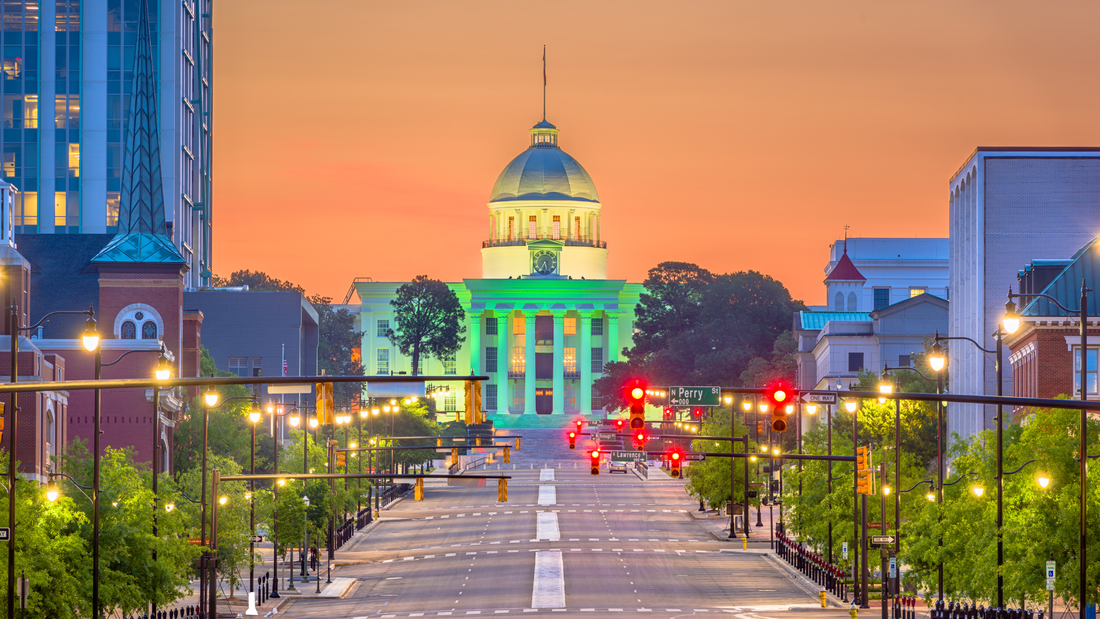
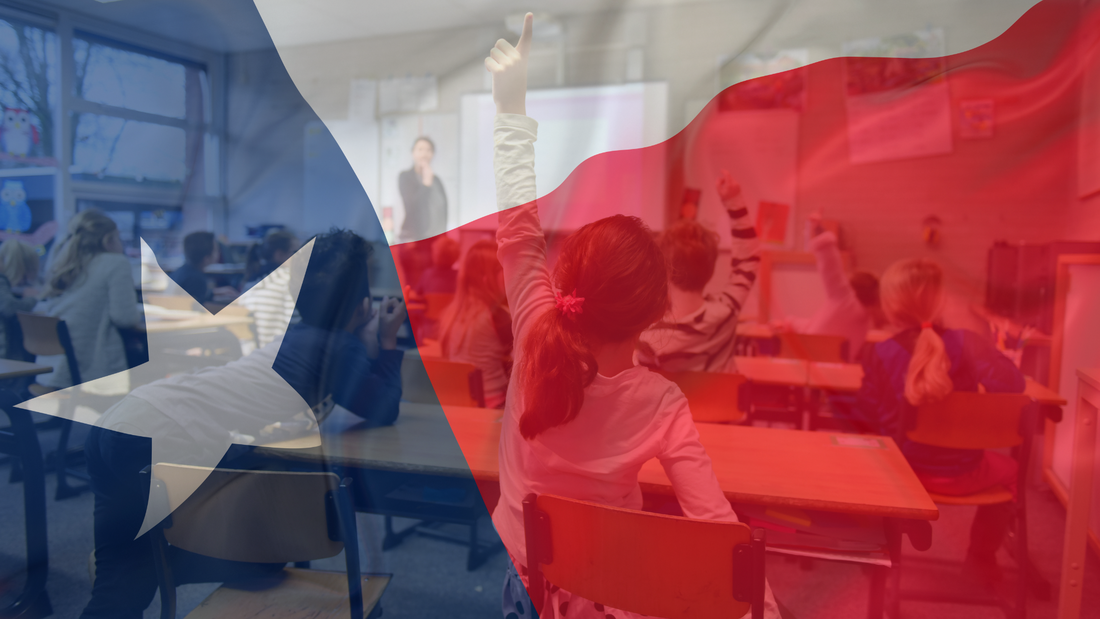

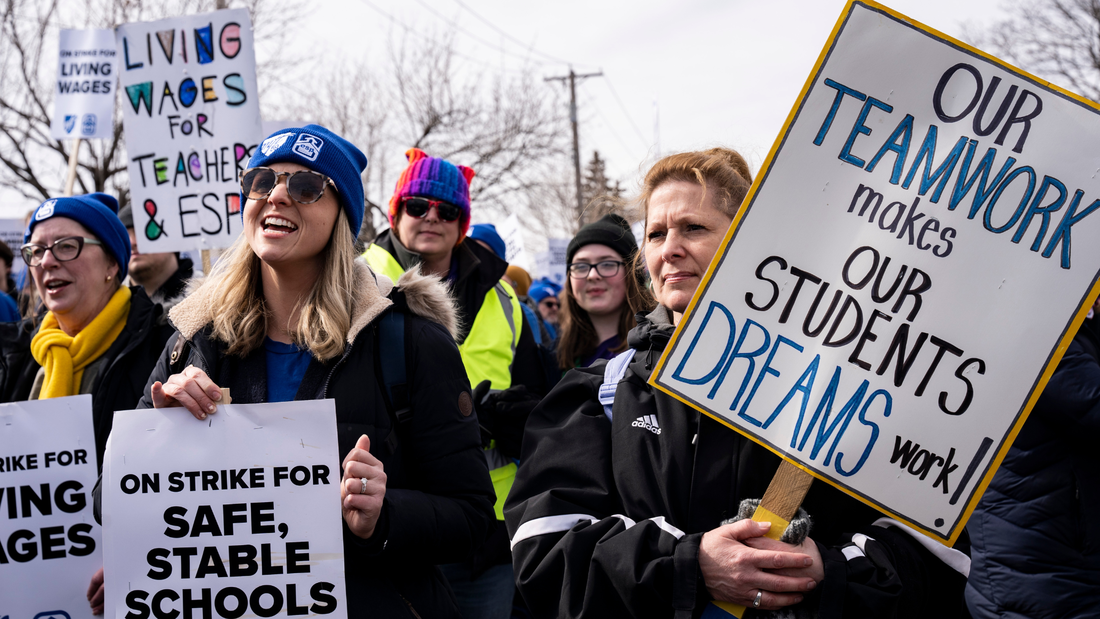

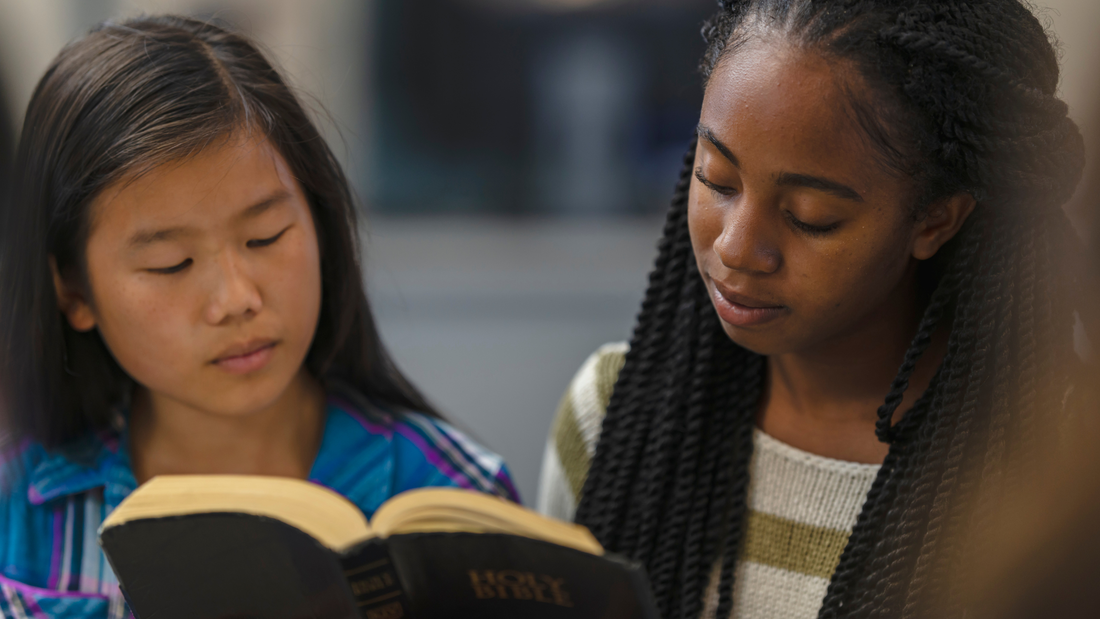
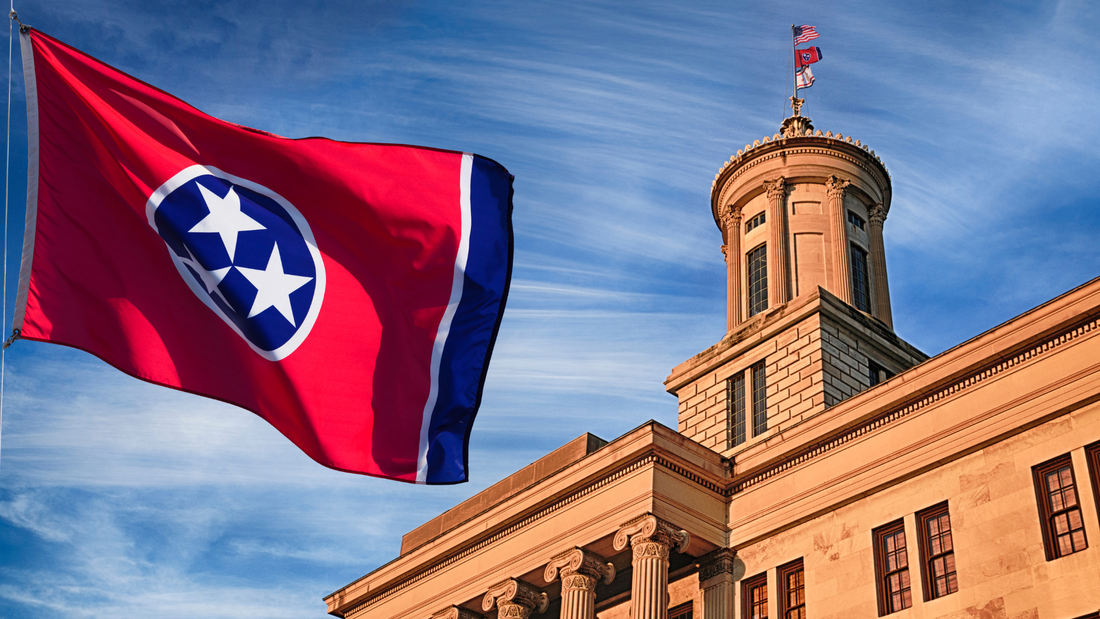

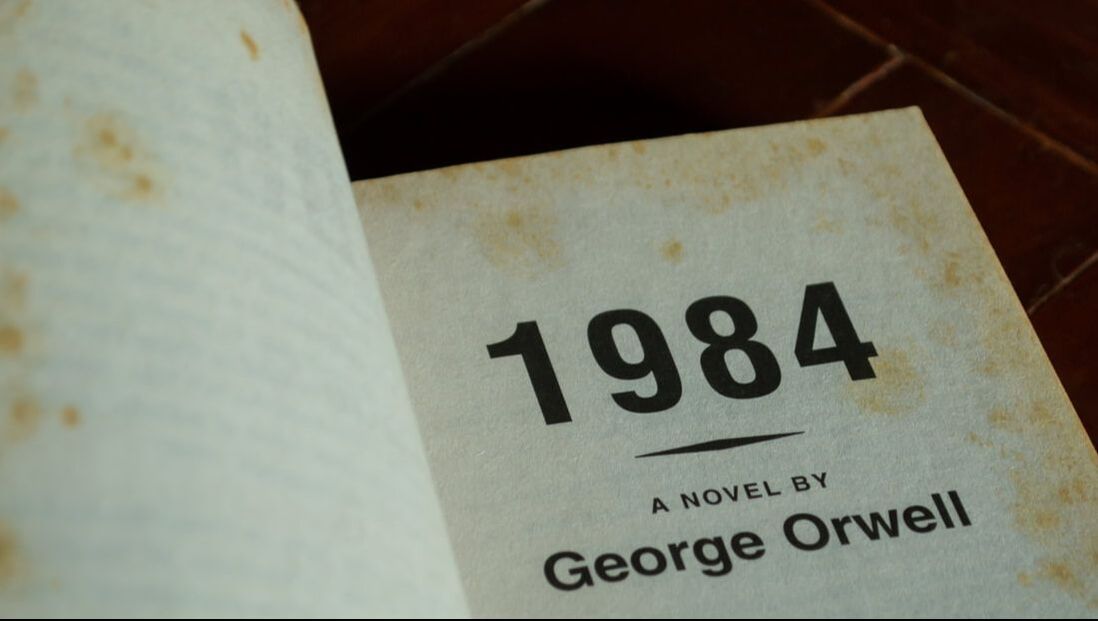

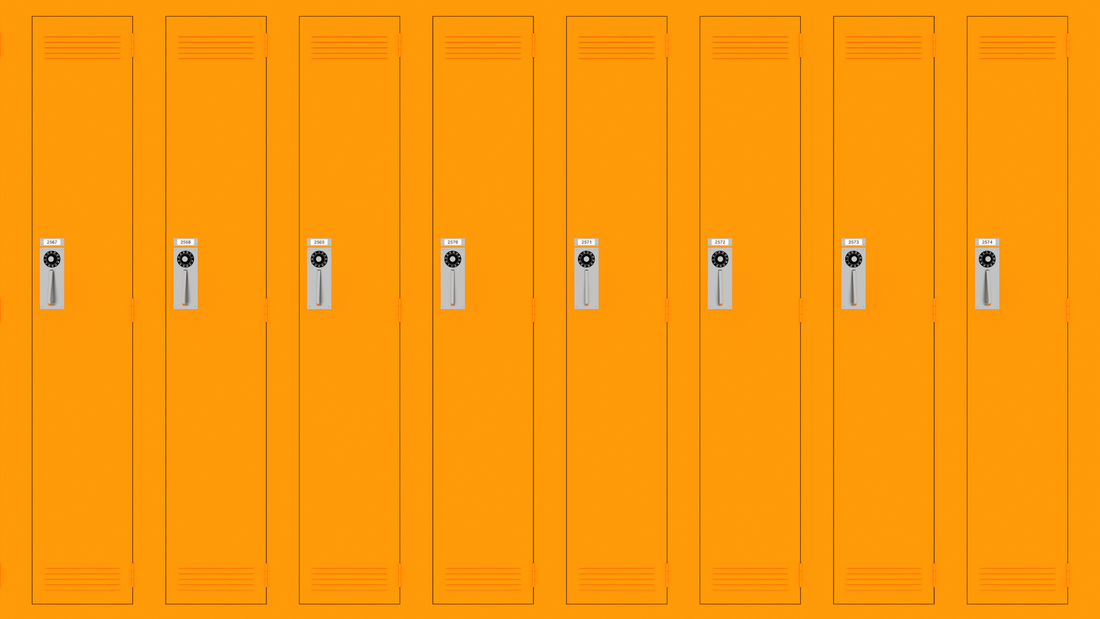


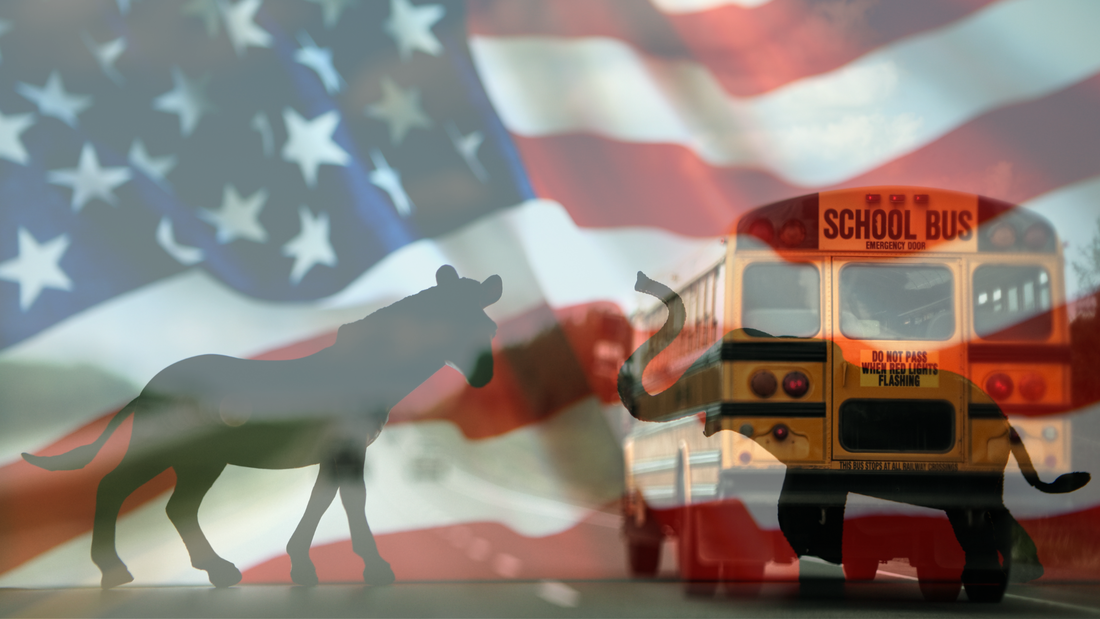

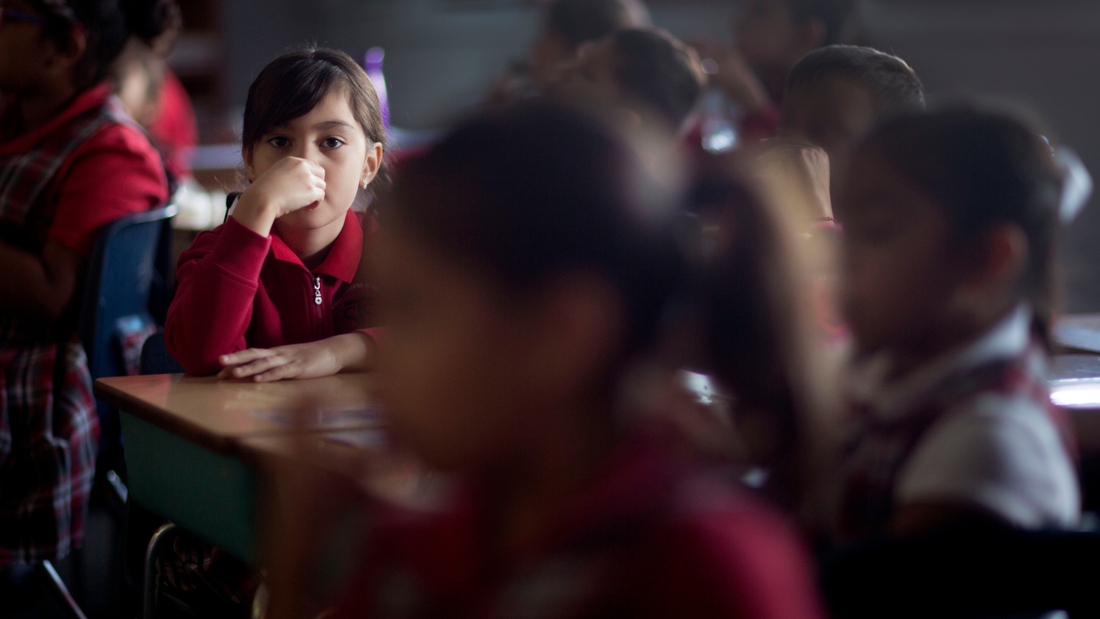
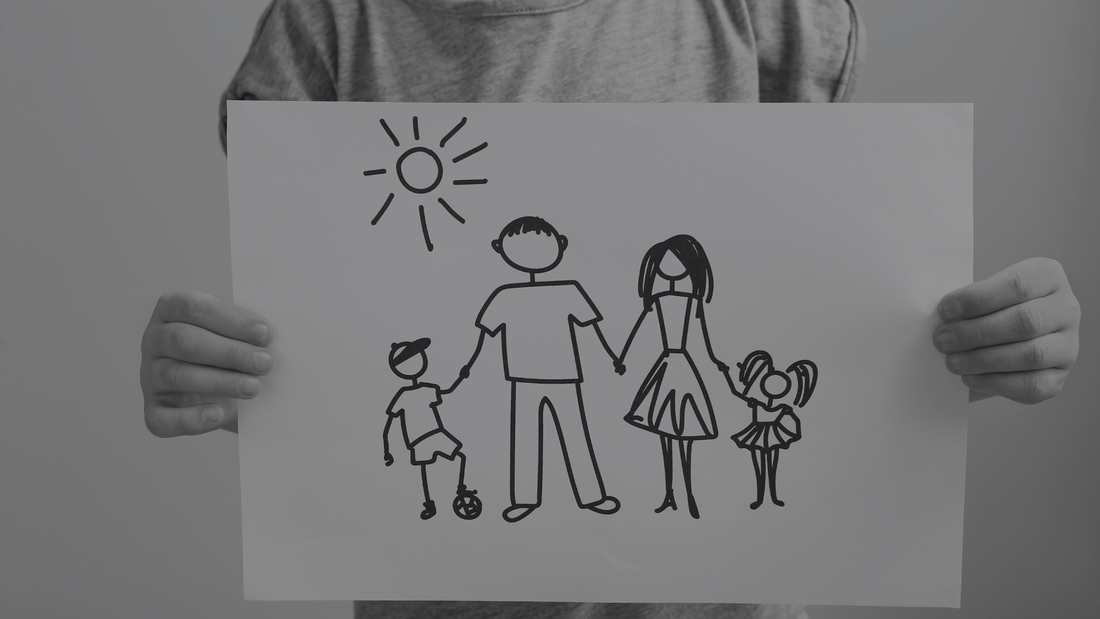
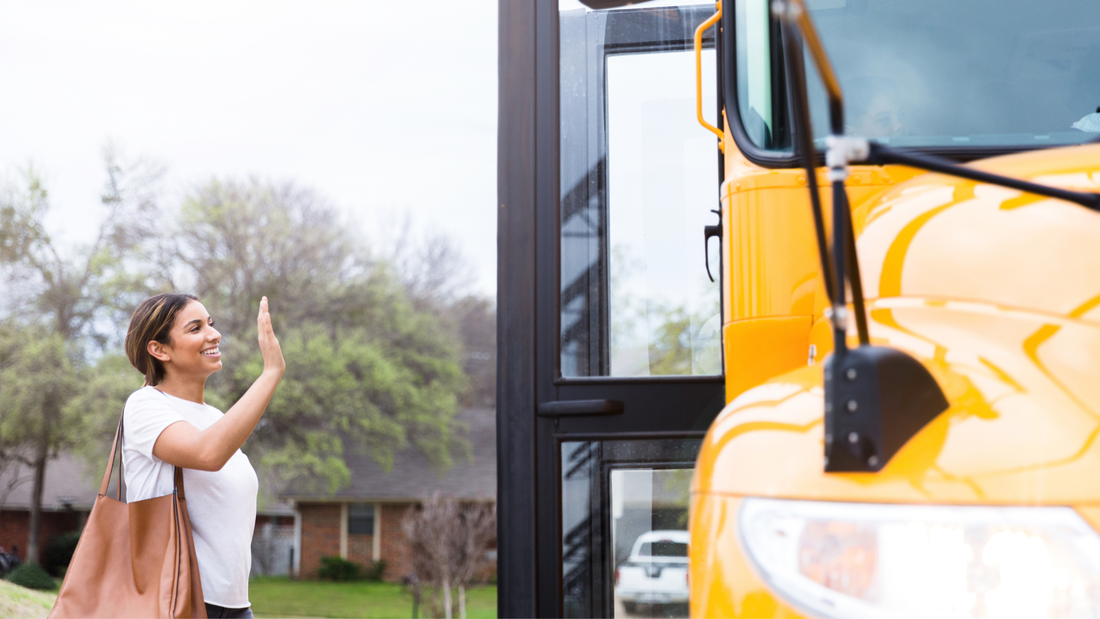

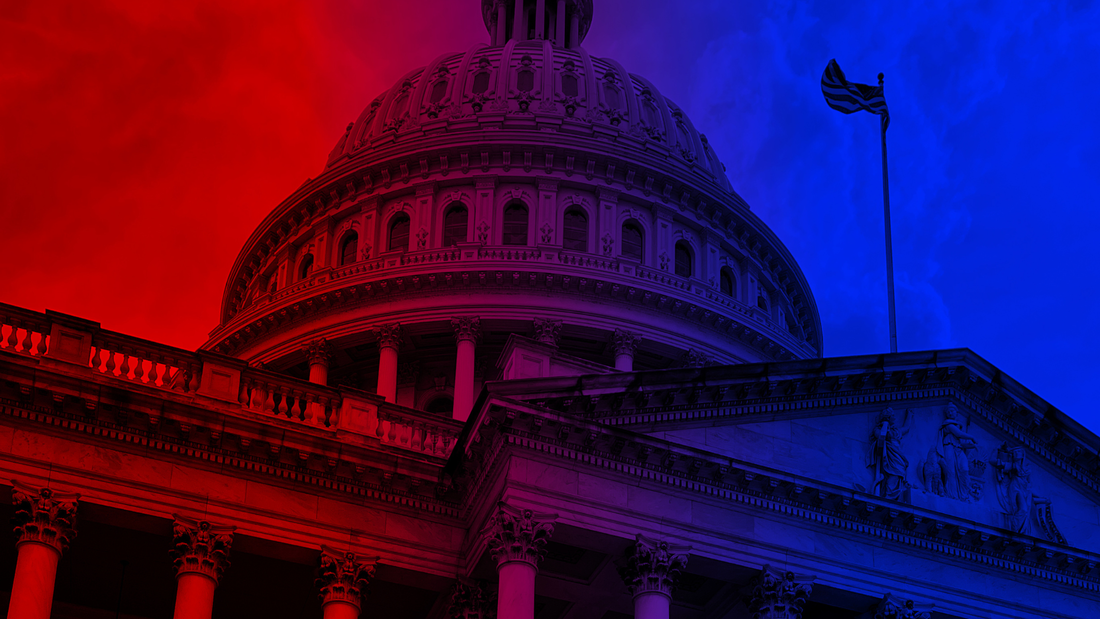
 RSS Feed
RSS Feed